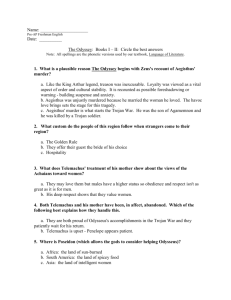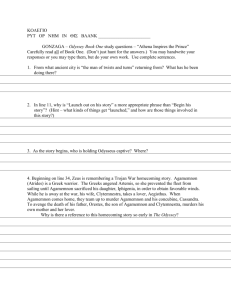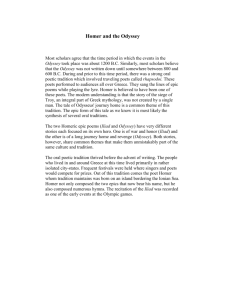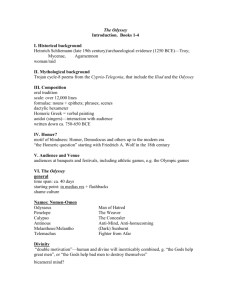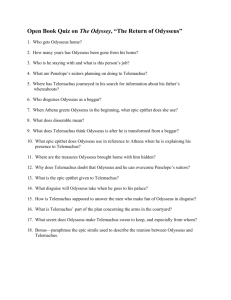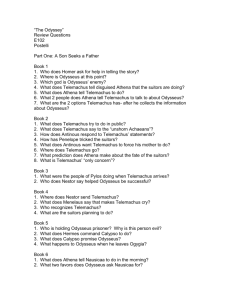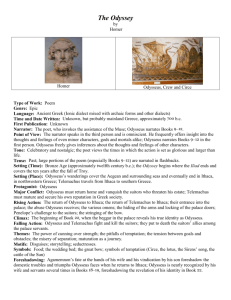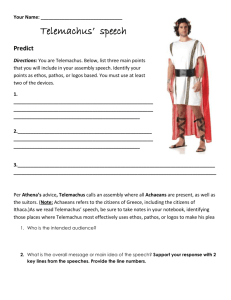Odyssey. Books 13-18
advertisement
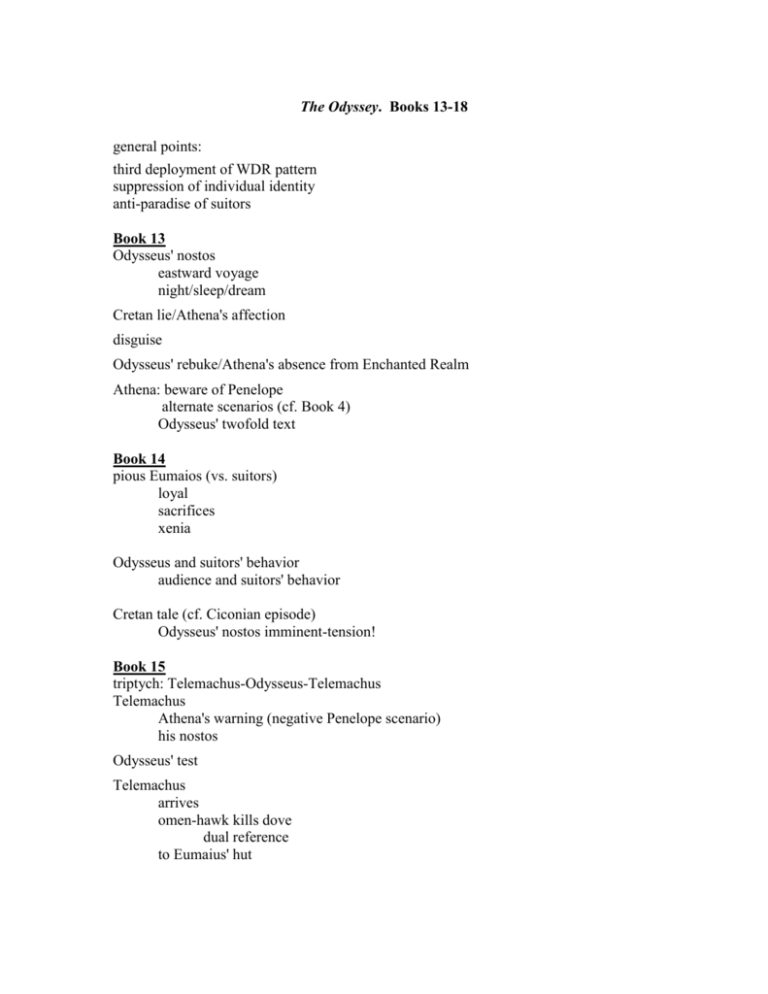
The Odyssey. Books 13-18 general points: third deployment of WDR pattern suppression of individual identity anti-paradise of suitors Book 13 Odysseus' nostos eastward voyage night/sleep/dream Cretan lie/Athena's affection disguise Odysseus' rebuke/Athena's absence from Enchanted Realm Athena: beware of Penelope alternate scenarios (cf. Book 4) Odysseus' twofold text Book 14 pious Eumaios (vs. suitors) loyal sacrifices xenia Odysseus and suitors' behavior audience and suitors' behavior Cretan tale (cf. Ciconian episode) Odysseus' nostos imminent-tension! Book 15 triptych: Telemachus-Odysseus-Telemachus Telemachus Athena's warning (negative Penelope scenario) his nostos Odysseus' test Telemachus arrives omen-hawk kills dove dual reference to Eumaius' hut Book 16 diptych: Odysseus/Telemachus/Eumaios-the Suitors Eumaius and Telemachus reunite Telemachus' question Telemachus' xenia (vs. suitors' in the past and future) Penelope's strategy Penelope periphron alternate scenarios/traditions re. Penelope Odysseus and Telemachus reunite Odysseus' two-fold test (most) suitors' plot vs. Telamachus tension-final wooing Book 17 Telemachus' message to Penelope Odysseus' nostos imminent-tension! omen of Book 15 reinterpreted impious Melanthius Argus as symbol of loyalty Odysseus' test: un-Iliadic heroism as beggar plan of Athena: two-fold test Antinous and stool his moral status reaffirmed Book 18 Irus as double of suitors/foreshadowing Amphinomous desirable Penelope as prize now time for remarriage/Telemachus' beard periphron Penelope-gifts (Odysseus proud) threat of Antinous-ultimatum tension Melantho (proleptic contrast with Eurycleia)-Melanthius' counterpart Odysseus' test Eurymachus and stool Telemachus' rebuke-adult Amphinomous-piety
